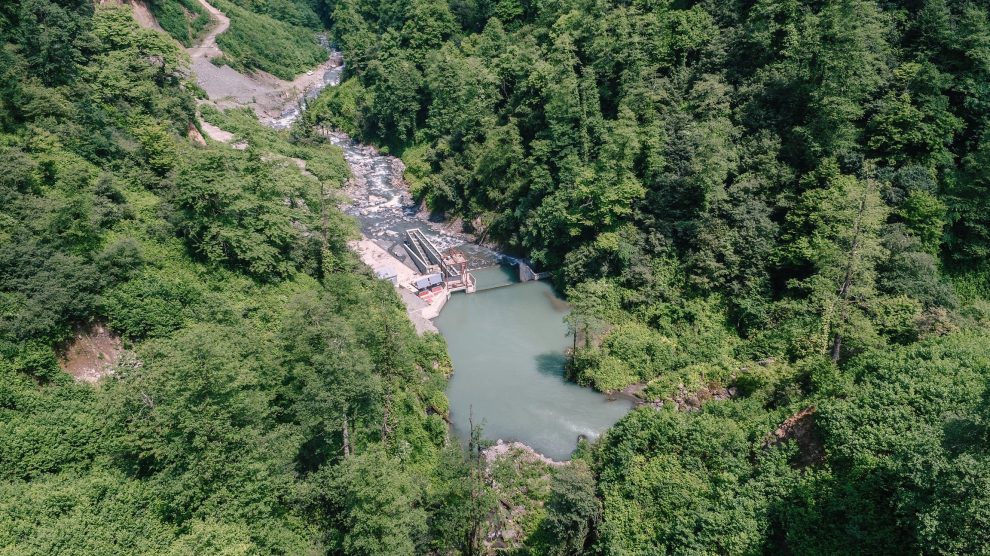Developing a sustainable renewable power sector is a major task for Georgia. The country must now strike a balance in its pursuit of import-free electricity economics with due care to the natural environment and local communities.
At Silk Energy, we not only view this as a challenge to be risen to but an opportunity to enhance a high-tech, innovative new industry with skilled jobs for Georgian workers. With a concerted effort, we can get the country into a position where clean, affordable hydropower is a significant and eventually dominant proportion of the energy mix.
Renewables and low carbon generation already forms a significant part of Georgia’s energy mix, led by hydro and biofuels. However, as with all countries, developing a cleaner, greener power system is a leading priority. The country is already seeing benefits to this, with CO2 emissions falling year-on-year from their peak in 2016, according to the International Energy Agency (IEA).
- Central Asia’s resource curse
- Namakhvani HPP will allow Georgia to reduce its dependence on Russia
- The foundations of Georgia’s tourism sector remain strong
For a relatively small country, at only 26,911 square miles, Georgia has plenty of natural water sources. 860 lakes, over 26,000 rivers and 43 man-made reservoirs make it, proportionally, one of the best-equipped countries in the world to harness hydropower as a natural renewable source of energy whilst improving its energy independence at the same time.
However, this potential is yet to be fully realised, with significant progress to be made. According to recent estimates by Georgia’s energy regulator, less than a quarter of our water resources technical potential is currently being used.
Since 2015, Silk Energy has operated the Bakhvi run-of-river hydropower plant in Georgia’s Guria region, 40 high-skilled jobs were created, 10MW of clean power came onto the Georgian grid with minimal environmental damage or disruption. The plant entails an outstanding engineering solution and design for the fishway or fish ladder structure located at the water intake facility. Annual environmental surveys of the river habitat by external specialists prove the efficiency of the fishway structure in protecting the natural environment.
The Bakhvi project alone is not going to see a fundamental shift in Georgia’s energy mix. However, what the project does set out is a blueprint for providing clean power is successful synergy with environmentally friendly tools and commitments and socially responsible and adequate programmes in close communication with local communities. Whilst I accept this is more easily achieved with smaller projects, there is no reason it cannot be the case with larger-scale initiatives.
As with all energy projects, deploying new technology and applying untested approaches, there is considerable trial and error involved. When you are an early adopter, the price you pay for being ahead of others is to experience all the problems from which lessons must be learned. However, this should not be a deterrent for companies to take up innovative, cutting-edge projects as there are commercial, as well as societal dividends for taking an early lead.
Developers of hydropower have to be sensitive to their local environment and not be seen to bring about change in opposition to the local area’s interests. We all understand the need for cleaner, greener sources of power, but this must not come at ‘any cost’.
It is a challenge to be faced by government and companies alike to improve the social acceptance of new hydropower projects. We must not simply tell people that it is a good thing, but show them in the form of effective, clean power plants that do not inflict significant damage on nature.
Improving the social acceptance of hydropower is not only crucial to providing a cleaner Georgian energy mix, but also for attracting domestic and international investment. The development of new technology and renewable energy generation simply is not possible without private investment.
At Silk Energy we have put millions behind various projects, not all of which have come to full deployment, as we can see their societal and financial potential. Without confidence that new hydropower projects will enjoy public confidence, investors will simply look to put their money elsewhere.
I believe most Georgians can see the benefits to us all of developing clean, effective and efficient hydropower, harnessing the power of our natural environment. At Bakhvi, we see a blueprint for the future of the country’s energy needs that supports and adheres to the country’s carbon reduction commitments. The benefits will stretch far beyond climate change commitments, including a better looked after natural habitat, high-skilled jobs for Georgian workers, more prosperous local communities and greater energy independence. This is what going green the Georgian way looks like.
Photo: Silk Road Energy
Unlike many news and information platforms, Emerging Europe is free to read, and always will be. There is no paywall here. We are independent, not affiliated with nor representing any political party or business organisation. We want the very best for emerging Europe, nothing more, nothing less. Your support will help us continue to spread the word about this amazing region.
You can contribute here. Thank you.



